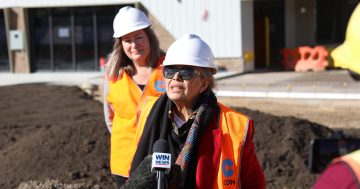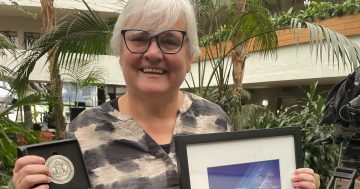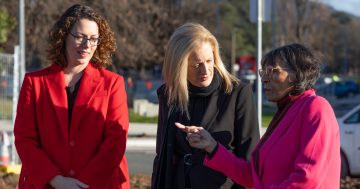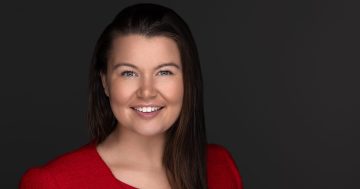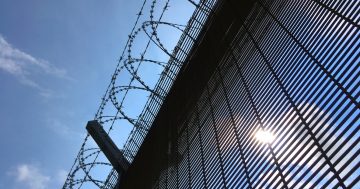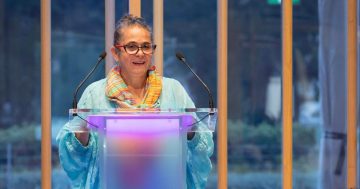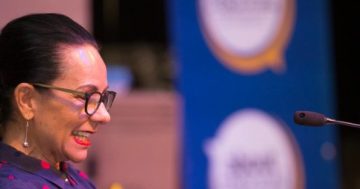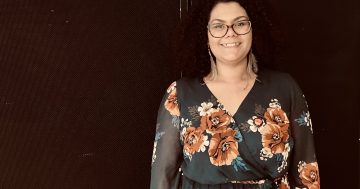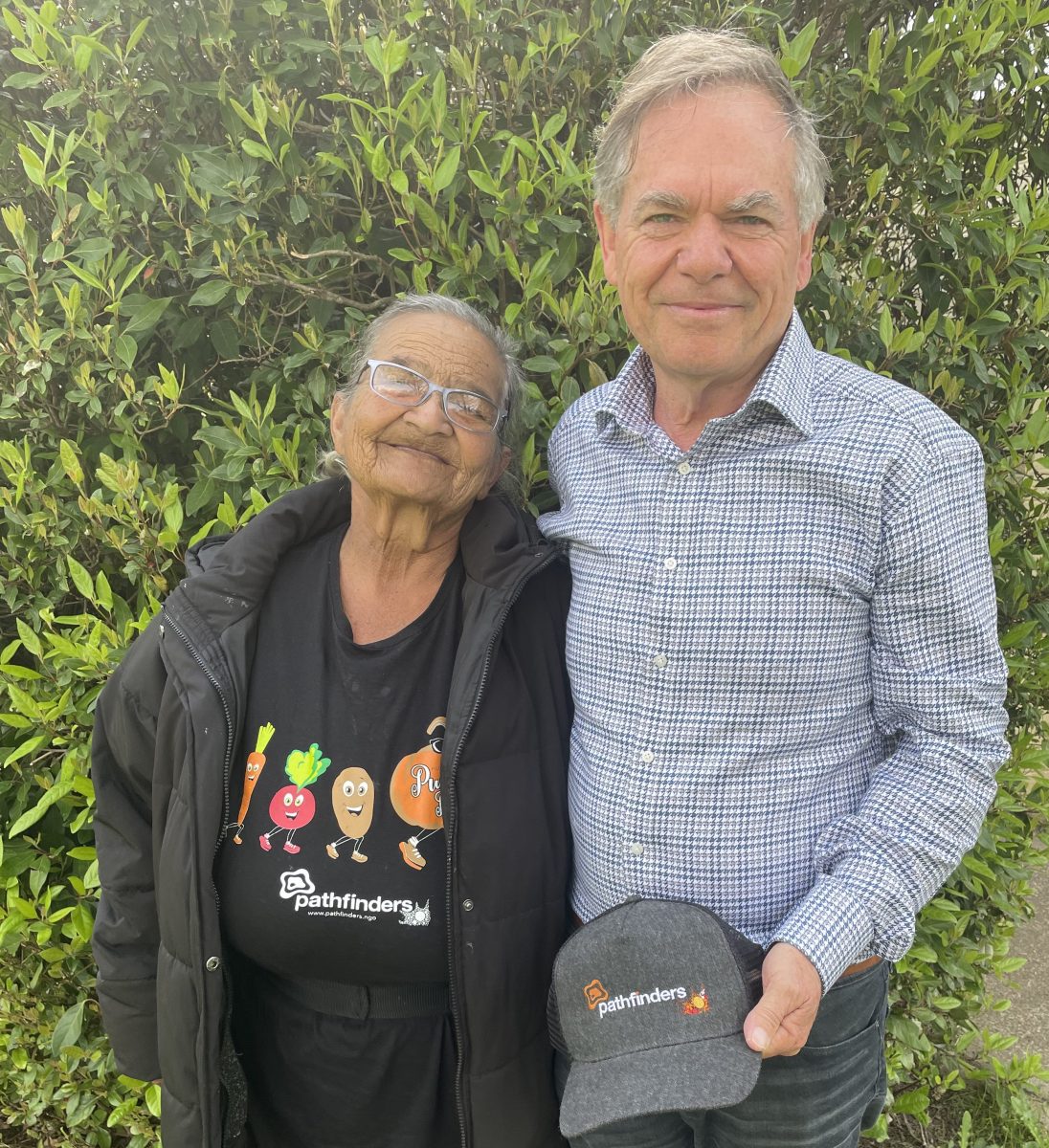
Kamilaroi woman Aunty Rosie with Alan Brennan from Pathfinders at the launch in Canberra on Tuesday. Photo: Sally Hopman.
When Elder Aunty Rosie was a young girl growing up in Kamilaroi Country in northern NSW, she’d head for the bush when she heard police or the school inspectors were in town.
“We had to keep out of sight because we were scared of being taken away,” she said.
“If we heard the inspectors were about, we’d go camp in the bush until they went away. I remember I was about 10 when it first happened and it stayed that way until I was 16.”
The idea of going to authorities voluntarily, she said, was never part of the story.
Today, Aunty Rosie is one of the directors of Pathfinders in Canberra, a not-for-profit group that helps make life easier for people in need. As part of its many programs, it helps provide free birth certificates and registrations for the Aboriginal and Torres Strait Island community.
She was on hand at Gugan Gulwan Youth Aboriginal Corporation at Wanniassa on Tuesday (18 October) for the launch of a joint campaign with UNICEF Australia to help Aboriginal and Torres Strait Islanders apply for their birth certificates at no cost.
She said applying for her birth certificate was probably one of the last things she would have done as a young person, but she saw the time for change was now well overdue.
“We were scared of authority back in my day, but it’s different now. People need them.”
Chief Executive Officer of Pathfinders Alan Brennan said without a birth certificate, “you don’t have a voice”.
“There are 200,000 Aboriginals in Australia who have never had a birth certificate. These people have had no rights.
“We have the support of the United Nations doing this project, yet these people didn’t have the support of the government of Australia.”
Mr Brennan said an Aboriginal or Torres Strait Islander child could not get the education they deserved without the document – “it is so important for all Australians”.
“We’re talking about our First Nations people here. They should have one. It’s a birthright.”
Without the document, people can’t do everyday things others take for granted, like opening a bank account, playing sports, voting or sitting on a jury.
“Birth certificates underpin every target of the National Agreement on Closing the Gap initiative, including education, health and fitness, employment, economic participation and reducing the number of people in corrective services,” he said.
“Aboriginal people experience unique barriers to gaining access to and receiving their birth certificates. Costs, literacy, limited access to technology and records, remoteness and a history of broken relationships with government make applying for a birth certificate complex.”
Aunty Rosie said her mother died before she received her birth certificate.
“It took me a while to get one for Mum back then, but she died before we could give it to her.
“That’s why it’s important for people to get them now.”
Aunty Rosie has her birth certificate and encourages other Aboriginal and Torres Strait Islanders to get one too.
“I got one when I started working at DOCS and was helping people.”
In the past five years, 13,000 Aboriginal and Torres Strait Islanders have received birth certificates – but it is just a drop in the ocean in terms of how many people should have one, according to UNICEF.
It reported that analysis of birth data in Queensland, for example, showed that about 15 to 18 per cent of births to Indigenous mothers were not registered compared to 1.8 per cent born to non-Indigenous mothers.
More information about the birth certificate project is available here.












